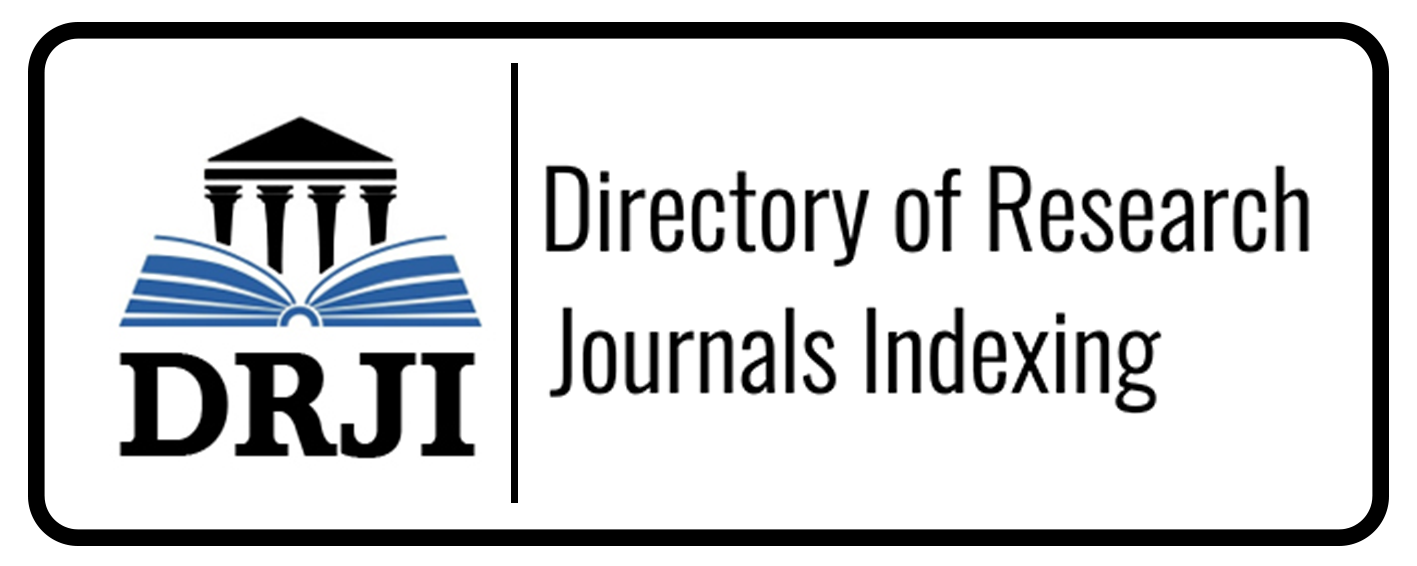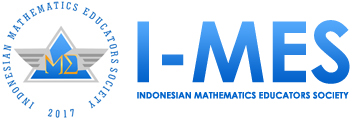Information and Communication Technology (ICT) Skills: Are They Important For Prospective Mathematics Teachers?
Abstract
At this time the demands of education are increasingly modern where teachers are required to be able to adapt to the development of increasingly sophisticated technology. The ability in the field of Information and Technology (ICT) is an important thing that must be mastered to be able to produce mathematics teachers who are able to answer the challenges of the 21st century in the field of technology integration in learning. The purpose of this research is to see the views of Tadris Mathematics students on the importance of ICT skills to be mastered by prospective mathematics teachers in making ICT-based learning media. This research is a descriptive qualitative research type survey conducted at the Kerinci State Islamic Institute by distributing questionnaires to 67 students in the mathematics tadris department from various levels. From the research conducted obtained 59.5% of students can make ICT-based learning media, 73% of students have made learning media, 72.4% of students stated that they wanted to deepen their ability to utilize ICT capabilities to make learning media. Researchers can conclude from the findings that the knowledge of Information and Comunication Tcnology is very important for students as prospective mathematics education teachers who will face the technological revolution that is increasingly developing at this time.
Downloads
References
Al-Ansi, A. M., Garad, A., & Al-Ansi, A. (2021). ICT-Based Learning During Covid-19 Outbreak: Advantages, Opportunities and Challenges. Gagasan Pendidikan Indonesia, 2(1), 10. https://doi.org/10.30870/gpi.v2i1.10176
Ali, W. (2020). Online and Remote Learning in Higher Education Institutes: A Necessity in light of COVID-19 Pandemic. Higher Education Studies, 10(3), 16. https://doi.org/10.5539/hes.v10n3p16
Amin, M., & Mustaqim, B. (2021). Vocational Teachers Readiness in Integration The Principles of Industrial Revolution 4 . 0 into The Learning Process. Elinvo (Electronics, Informatics, and Vocational Education), 6(2), 106–119.
Astini, N. K. S. (2019). Pentingnya Literasi Teknologi Informasi Dan Komunikasi Bagi Guru Sekolah Dasar Untuk Menyiapkan Generasi Milenial. Prosiding Seminar Nasional Dharma Acarya, 1(2018), 113–120.
Ayu Ardani, R., Humaira Salsabila, N., Handican, R., & Setyaningrum, W. (2018). The Perceptions of Students and Teachers About The Use of Edutainment Instructional Media in Mathematics Learning. 160(Incomed 2017), 228–234. https://doi.org/10.2991/incomed-17.2018.49
Bera, S. (2015). Enhancing Quality of Teaching Learning By Using Information and Communication Technology (Ict). Scholarly Research Journal For Interdisciplinary Studies, 3(18), 100–101. www.srjis.com
Boruah, N. (2022). Impact of ICT in education. International Journal of Health Sciences, 6(March), 1818–1822. https://doi.org/10.53730/ijhs.v6ns2.5397
Carroll, D., Parasnis, J., & Tani, M. (2021). Why do women become teachers while men don’t? B.E. Journal of Economic Analysis and Policy, 21(2), 793–823. https://doi.org/10.1515/bejeap-2020-0236
Chandra, A. C., & Pouchous, K. I. (2017). Information and Communication Technology (ICT) Industry in the Fourth Industrial Revolution. … and Challenges for Workers in Asia …, January 2017, 1–29.
Garg, R. (2021). Role of ICT in Teaching and Learning. March.
Ghavifekr, S., Ahmad Zabidi Abd Razak Muhammad Faizal A. Ghani, Ng Yan Ran, Yao Meixi, & Zhang Tengyue. (2014). ICT Integration In Education: Incorporation for Teaching & Learning Improvement. Malaysian Online Journal of Educational Technology, 2(2), 24–54. http://www.mojet.net/article.php?volume=2&issue=2&vid=34&article=80
Ghavifekr, S., Kunjappan, T., Ramasamy, L., Anthony, A., & My, E. (2006). Teaching and Learning with ICT Tools: Issues and Challenges from Teachers’ Perceptions. Malaysian Online Journal of Educational Technology, 4(2), 38–57. www.mojet.net
Ghavifekr, S., & Rosdy, W. A. W. (2015). Teaching and learning with technology: Effectiveness of ICT integration in schools. International Journal of Research in Education and Science, 1(2), 175–191. https://doi.org/10.21890/ijres.23596
Haleem, A., Javaid, M., Qadri, M. A., & Suman, R. (2022). Understanding the role of digital technologies in education: A review. Sustainable Operations and Computers, 3(February), 275–285. https://doi.org/10.1016/j.susoc.2022.05.004
Handican, R., & Setyaningrum, W. (2021). Developing a Mobile Game Using Scientific Approach to Support Mathematics Learning. Edumatika : Jurnal Riset Pendidikan Matematika, 4(1), 47–58. https://doi.org/10.32939/ejrpm.v4i1.607
Hidayat, R., Ag, S., & Pd, M. (n.d.). Buku Ilmu Pendidikan Rahmat Hidayat & Abdillah.
Imania, K. A., & Bariah, S. K. (2019). Rancangan Pengembangan Instrumen Penilaian Pembelajaran Berbasis Daring. Jurnal Petik, 5(1), 31–47. https://doi.org/10.31980/jpetik.v5i1.445
Jumani, A. K., Siddique, W. A., Laghari, A. A., Abro, A., & Khan, A. A. (2022). Virtual Reality and Augmented Reality for Education. Multimedia Computing Systems and Virtual Reality, March, 189–210. https://doi.org/10.1201/9781003196686-9
Kidi. (2018). Teknologi Dan Aktivitas Dalam Kehidupan Manusia. Jurnal Pendidikan, 28, 1–28.
Kramarenko, T., Bondar, K., & Shestopalova, O. (2021). The ICT usage in teaching mathematics to students with special educational needs. Journal of Physics: Conference Series, 1840(1). https://doi.org/10.1088/1742-6596/1840/1/012009
Lase, D. (2019). Education And Industrial Revolution 4.0 Delipiter. Jurnal Handayani (JH), 10(1), 48–62. https://doi.org/10.24114/jh.v10i1
Manongga, D., Rahardja, U., Sembiring, I., Lutfiani, N., & Yadila, A. B. (2022). Dampak Kecerdasan Buatan Bagi Pendidikan. ADI Bisnis Digital Interdisiplin Jurnal, 3(2), 41–55. https://doi.org/10.34306/abdi.v3i2.792
Maslin, N. M. (2021). Impact of Modern Technology. HF Communications, 3, 165–182. https://doi.org/10.1201/b12574-14
Mawarni, P., Milama, B., & Sholihat, R. N. (2021). Persepsi Calon Guru Kimia Mengenai Literasi Digital Sebagai Keterampilan Abad 21. Jurnal Inovasi Pendidikan Kimia, 15(2), 2849–2863. https://doi.org/10.15294/jipk.v15i2.28394
Maylitha, E., Hikmah, S. N., Hanifa, S., Guru, P., & Dasar, S. (2022). Pentingnya Information and Communication Technology bagi Siswa Sekolah Dasar dalam Menghadapi Abad 21. Jurnal Pendidikan Tambusai, 6(1), 8051–8062.
Mulatsih, B. (2020). Penerapan Aplikasi Google Classroom, Google Form, dan Quizizz dalam Pembelajaran Kimia di Masa Pandemi Covid-19. Ideguru: Jurnal Karya Ilmiah Guru, 5(1), 16–26.
Myori, D. E., Chaniago, K., Hidayat, R., Eliza, F., & Fadli, R. (2019). Peningkatan Kompetensi Guru dalam Penguasaan Teknologi Informasi dan Komunikasi melalui Pelatihan Pengembangan Media Pembelajaran Berbasis Android. JTEV (Jurnal Teknik Elektro Dan Vokasional), 5(2), 102. https://doi.org/10.24036/jtev.v5i2.106832
Nababan, T. M., Purba, S., & Siburian, P. (2020). The Challenge of Being a Teacher in Industrial Revolution 4.0. Advances in Social Science, Education and Humanities Research, 488(Aisteel), 219–223. https://doi.org/10.2991/assehr.k.201124.047
Nushi, M., & Eqbali, M. H. (2018). Babbel : A Mobile Language Learning App Babbel : A Mobile Language Learning App Review by Musa Nushi and Mohamad Hosein Eqbali. TESL Reporter, 51(1), 109–119.
Organisation for Economic Co-operation and Development. (2020). ICT resources in school education: What do we know from OECD work? European University Institute, 2, 2–5.
Parlindungan Pardede, & Sunarto. (2020). Persepsi Guru Dan Siswa TerhadapPenggunaan Tik Dalam Pembelajaran DiSekolah Menengah Di Jakarta DanSekitarnya. Jurnal Dinamika Pendidikan, 13(3), 226–237. https://doi.org/10.33541/jdp.v12i3.1295
Puspitarini, Y. D., & Hanif, M. (2019). Using Learning Media to Increase Learning Motivation in Elementary School. Anatolian Journal of Education, 4(2), 53–60. https://doi.org/10.29333/aje.2019.426a
Rahmatullah, A. S., Mulyasa, E., Syahrani, S., Pongpalilu, F., & Putri, R. E. (2022). Digital Era 4.0: The Contribution to Education and Student Psychology. Linguistics and Culture Review, 6(S3), 89–107.
Redecker, C. (2013). The Use of ICT for the Assessment of Key Competences (Issue October). https://doi.org/10.2791/87007
Rivalina, R. (2015). Kompetensi Teknologi Informasi Dan Komunikasi Guru Dalam Peningkatan Kualitas Pembelajaran. Jurnal Teknodik, 4, 165–176. https://doi.org/10.32550/teknodik.v0i0.121
Rizaldi, D. B., & Yana, D. (2022). Persepsi Guru Bahasa Inggris terhadap Teknologi Informasi dan Literasi Digital. Jurnal Pendidikan Tambusai, 6(2010), 1302–1307. https://jptam.org/index.php/jptam/article/view/3108
Rodriguez Casal, C. (2014). ICT for education and development. In The Challenges of meeting the Millennium Development Goals in Africa (Vol. 9, Issue 4). https://doi.org/10.1108/14636690710762093
Rohita, R. (2020). The Ability of Ece Teachers to Use ICT in The Industrial Revolution 4.0. Jurnal Obsesi : Jurnal Pendidikan Anak Usia Dini, 4(2), 502. https://doi.org/10.31004/obsesi.v4i2.339
Salsabila, N. H., Wulandari, N. P., Lu, U., Wahyu, T., & Kerinci, I. (2020). Pandangan Mahasiswa Pendidikan Matematika : Apakah Siswa akan Mudah Belajar dengan Permainan Edukasi? Jurnal Karya Pendiidkan Matematika, 7(2), 1–5.
Setyoningsih. (2015). E Learning : Pembelajaran Interaktif Berbasis Teknologi. Elementary, 3(1), 39–58.
Shadreck Mandina, S. S. Mashingaidze, & Mafuta, J. (2013). Increasing female participation in advanced level mathematics: A perspective from students and teachers in Zimbabwe. African Educational Research Journal, 1(3), 183–190.
Sivakova, D., Kochoska, J., Ristevska, M., & Gramatkovski, B. (2017). ICT- the educational programs in teaching mathematics. TEM Journal, 6(3), 469–478. https://doi.org/10.18421/TEM63-06
Stewart-Williams, S., & Halsey, L. G. (2021). Men, women and STEM: Why the differences and what should be done? European Journal of Personality, 35(1), 3–39. https://doi.org/10.1177/0890207020962326
Suyatna, A. (2020). ICT learning media comparative studies: Simulation, e-modules, videos. Journal of Physics: Conference Series, 1572(1). https://doi.org/10.1088/1742-6596/1572/1/012036
tina Arantika, R. (2018). Peran Teknologi untuk Pengembangan Karir Sekretaris (Rosidah &Tina Arantika) PERAN TEKNOLOGI UNTUK PENGEMBANGAN KARIR SEKRETARIS. Jurnal Efisiensi-Kajian Ilmu Administrasi Edisi Februari, 1(1), 43–50.
Winarto, Y. J. (2020). Efforts to Increase the Pedagogics of Teachers in Making IT-Based Learning Media in the 4.0 Era. 387(Icei), 113–116. https://doi.org/10.2991/icei-19.2019.27
Witaharahap, L., & Surya, E. (2017). Development of Learning Media in Mathematics for Students with Special Needs. International Journal of Sciences: Basic and Applied Research (IJSBAR) International Journal of Sciences: Basic and Applied Research, 33(3), 1–12. http://gssrr.org/index.php?journal=JournalOfBasicAndApplied
Copyright (c) 2023 Putri Yulianti, Rhomiy Handican

This work is licensed under a Creative Commons Attribution 4.0 International License.



























 JDIME: Journal of Development and Innovation in Mathematics Education (e-ISSN
JDIME: Journal of Development and Innovation in Mathematics Education (e-ISSN 
